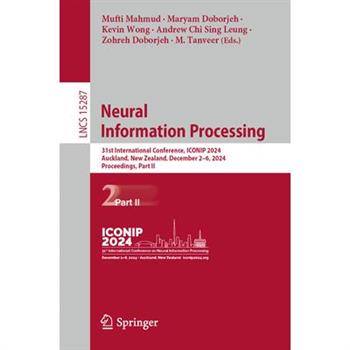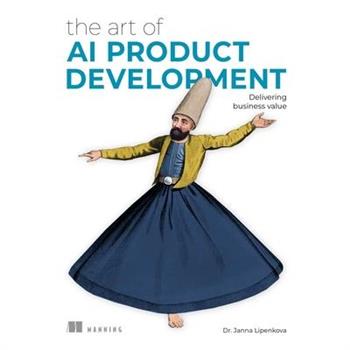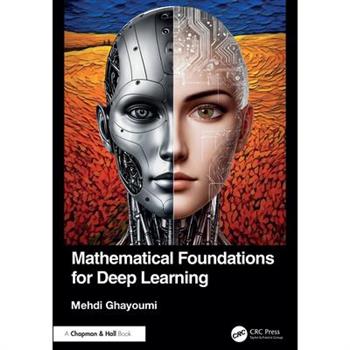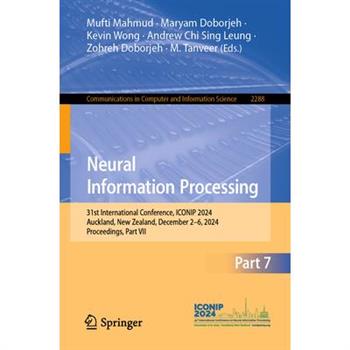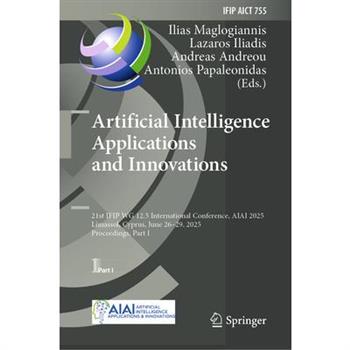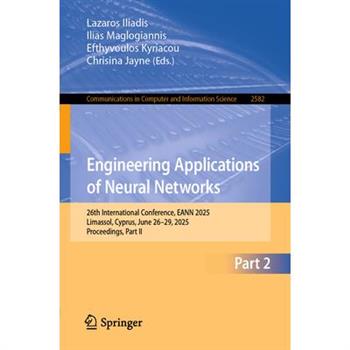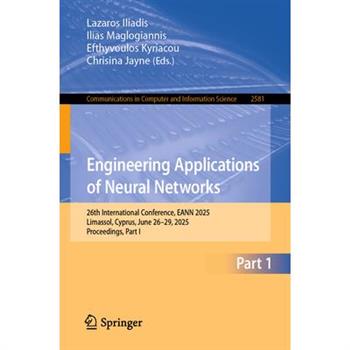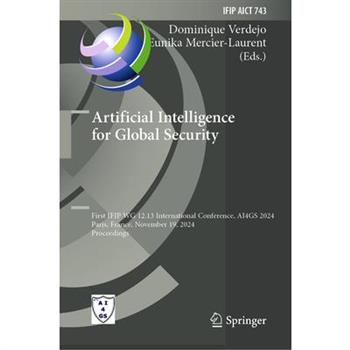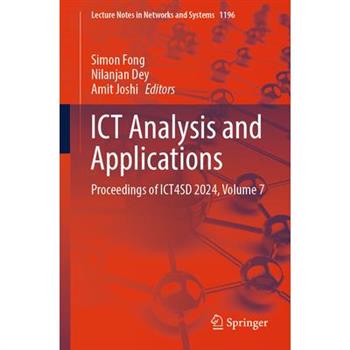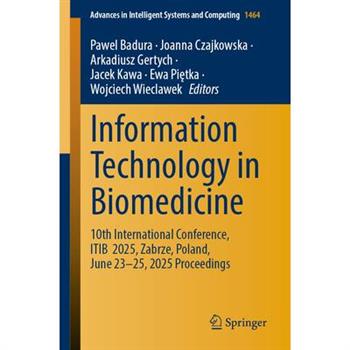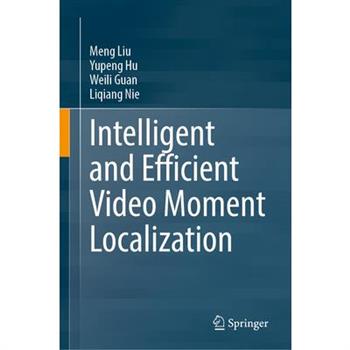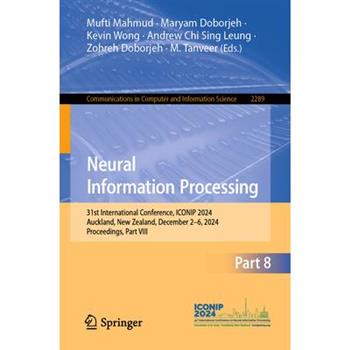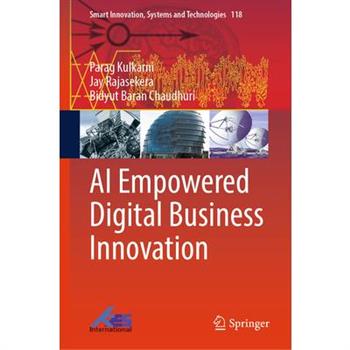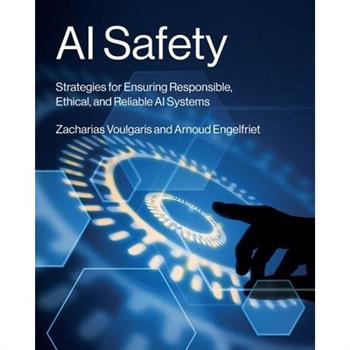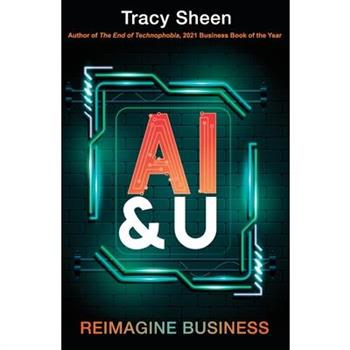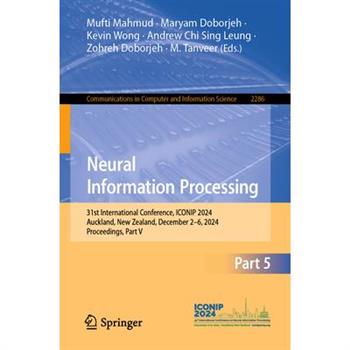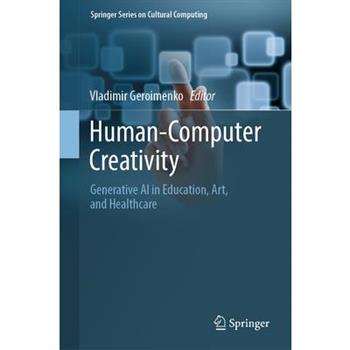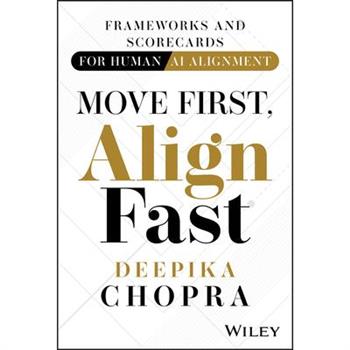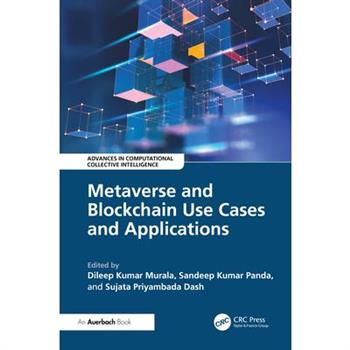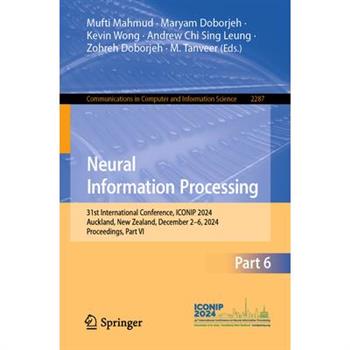CompTIA Network+ Certification Guide (Exam N10-009)
Network administrators are crucial in safeguarding data through cybersecurity, optimizing cloud resources, and ensuring secure remote connections, vital for maintaining seamless IT infrastructures. CompTIA Network+ Certification has become the industry standard for validating essential networking skills, making it crucial for IT professionals seeking to establish or advance their careers in network administration. Beginning with networking fundamentals including OSI models, TCP/IP protocols, and Wireshark analysis, it progresses through network topologies, cable installation, IP addressing, and subnetting practices. The second edition includes new content reflecting changes in the exam, such as evolving use cases for modern networks, important factors of physical installations, and additional details on implementing IPv4 and IPv6 network services. The content incorporates an acute awareness of security in network operations. Upon completing this guide, you will possess comprehensive Network+ knowledge and practical skills necessary to confidently pass the N10-009 exam and immediately contribute as a competent network administrator in any enterprise environment.WHAT YOU WILL LEARN● Gain a comprehensive understanding of the OSI model and its day-to-day application.● Learn about network performance monitoring techniques and strategies.● Implement wired, wireless, and remote technologies.● This new edition brings enhanced practical integration with hands-on Wireshark packet analysis and Cisco CLI configuration exercises.● Learn how to effectively work with IP addressing and subnetting for efficient network configuration.● Implement troubleshooting methodologies.WHO THIS BOOK IS FORThis book is designed for individuals who aspire to pursue a rewarding career in network administration. It caters to those who are interested in entering the field and aim to acquire the essential knowledge and skills necessary for success. Additionally, it serves as a valuable resource for emerging network support technicians who are currently working in or transitioning into this role.
Neural Information Processing
The eleven-volume set LNCS 15286-15296 constitutes the refereed proceedings of the 31st International Conference on Neural Information Processing, ICONIP 2024, held in Auckland, New Zealand, in December 2024.The 318 regular papers presented in the proceedings set were carefully reviewed and selected from 1301 submissions. They focus on four main areas, namely: theory and algorithms; cognitive neurosciences; human-centered computing; and applications.
The Art of AI Product Development
A hands-on guide for delivering value with AI-driven products! Learn how AI can improve content creation, accelerate data analysis, and upgrade process automation. The Art of AI Product Development offers a clear, practical approach to creating products that use AI. It provides real-world guidance on defining your AI strategy, developing useful AI features, and supporting user trust and adoption. Rather than chasing trends, the book focuses on core principles and long-term thinking--foundations that remain relevant as the field evolves. Inside The Art of AI Product Development, you will learn vital skills for the effective use of AI, including: - Identifying market and business opportunities for AI - Gaining an in-depth understanding of modern AI approaches, incl. predictive AI, LLMs, Retrieval-Augmented Generation, and agent systems - Assembling AI solutions that work, without the hype - Efficiently communicating with data scientists and ML engineers - Designing user-friendly AI interfaces that emphasize trust and transparency - Implementing safe, ethical AI with proper governance processes The Art of AI Product Development is written for product managers, tech executives, UX designers, and anyone responsible for the success of an AI-driven product. It introduces a broad spectrum of AI opportunities and case studies from different domains such as marketing, supply chain, and logistics. You'll carefully progress from initial design conversations, through to efficient and secure development, and on to deployment and day-to-day management of AI-driven applications. About the technology Integrating AI into your software and processes can create real value for your business and its customers--if you do it right. When you're on the hook for delivering AI-enabled products, you'll need to spot high-impact opportunities, work effectively with engineers, design user-centric features, avoid common project failures, and manage real-world launches. This book shows you how. About the book The Art of AI Product Development gives you a clear framework, practical tools, and real-world examples to build confidence and succeed with new AI projects--even if you're tackling AI for the first time. You'll love the practical use cases and end-to-end scenarios from domains such as marketing, supply chain management, and sustainability. What's inside - Ideate, shape, and prioritize AI opportunities - Develop AI systems with techniques such as prompt engineering, RAG, and predictive AI - Communicate with different AI stakeholders and promote AI adoption About the reader Written for software product managers, business-oriented engineers, UX designers, startup founders, and anyone responsible for developing, designing, or marketing AI products. No experience with AI required. About the author Dr. Janna Lipenkova is the founder of an AI and analytics business where she has successfully managed AI projects for world-class companies like BMW, Lufthansa, and Volkswagen. Table of Contents Part 1 1 Creating value with AI-driven products 2 Discovering and prioritizing AI opportunities 3 Mapping the AI solution space Part 2 4 Predictive AI 5 Exploring and evaluating language models 6 Prompt engineering 7 Search and retrieval-augmented generation 8 Fine-tuning language models 9 Automating workflows with agentic AI Part 3 10 AI user experience: Designing for uncertainty 11 AI governance 12 Working with your stakeholders Appendix A AI development toolbox Get a free eBook (PDF or ePub) from Manning as well as access to the online liveBook format (and its AI assistant that will answer your questions in any language) when you purchase the print book.
Mathematical Foundations for Deep Learning
This book bridges the gap between theoretical mathematics and practical applications in AI. Whether you're aiming to develop practical skills for AI projects, advance to emerging trends in deep learning, or lay a strong foundation for future studies, this book serves as an indispensable resource for achieving proficiency in the field.
Neural Information Processing
The sixteen-volume set, CCIS 2282-2297, constitutes the refereed proceedings of the 31st International Conference on Neural Information Processing, ICONIP 2024, held in Auckland, New Zealand, in December 2024. The 472 regular papers presented in this proceedings set were carefully reviewed and selected from 1301 submissions. These papers primarily focus on the following areas: Theory and algorithms; Cognitive neurosciences; Human-centered computing; and Applications.
Artificial Intelligence Applications and Innovations
This four-volume set constitutes the proceedings of the 21st IFIP WG 12.5 International Conference on Artificial Intelligence Applications and Innovations, AIAI 2025, which was held in Limassol, Cyprus, during June 2025. The 123 full papers and 7 short papers were presented in this volume were carefully reviewed and selected from 303 submissions. They focus on ethical-moral AI aspects related to its Environmental impact, Privacy, Transparency, Bias, Discrimination and Fairness.
Engineering Applications of Neural Networks
The two-volume set CCIS 2581 and 2582 constitutes the refereed proceedings of the 26th International Conference on Engineering Applications of Neural Networks, EANN 2025, held in Limassol, Cyprus during June 26-29, 2025. The 41 full papers included in these proceedings were carefully reviewed and selected from 101 submissions. These papers demonstrate the vitality of Artificial Intelligence algorithms and approaches, as well as AI applications.
Engineering Applications of Neural Networks
The two-volume set CCIS 2581 and 2582 constitutes the refereed proceedings of the 26th International Conference on Engineering Applications of Neural Networks, EANN 2025, held in Limassol, Cyprus during June 26-29, 2025. The 41 full papers included in these proceedings were carefully reviewed and selected from 101 submissions. These papers demonstrate the vitality of Artificial Intelligence algorithms and approaches, as well as AI applications.
Functional Imaging and Modeling of the Heart
This two-volume set, LNCS 15672 and LNCS 15673, constitutes the refereed proceedings of the 13th International Conference on Functional Imaging and Modeling of the Heart, FIMH 2025, held in Dallas, Texas, USA, during June 2-4, 2025. The 79 full papers presented in this book were carefully reviewed and selected from 93 submissions. These papers have been organized in the following topical sections: - Part I: Models for Electrophysiology, Arrhythmia and Their Sequalae; Biomechanics and Assessment of Cardiovascular Health; Model-Enhanced Data Acquisition and Processing. Part II: Multiscale & Multimodality Imaging; Image Processing and Visualization; Clinical Translations of Computational Modeling across Medical Specialties.
Functional Imaging and Modeling of the Heart
This two-volume set, LNCS 15672 and LNCS 15673, constitutes the refereed proceedings of the 13th International Conference on Functional Imaging and Modeling of the Heart, FIMH 2025, held in Dallas, Texas, USA, during June 2-4, 2025. The 79 full papers presented in this book were carefully reviewed and selected from 93 submissions. These papers have been organized in the following topical sections: - Part I: Models for Electrophysiology, Arrhythmia and Their Sequalae; Biomechanics and Assessment of Cardiovascular Health; Model-Enhanced Data Acquisition and Processing. Part II: Multiscale & Multimodality Imaging; Image Processing and Visualization; Clinical Translations of Computational Modeling across Medical Specialties.
Advances in Knowledge Discovery and Data Mining
The five-volume set, LNAI 158710 - 15874 constitutes the proceedings of the 29th Pacific-Asia Conference on Knowledge Discovery and Data Mining, PAKDD 2025, held in Sydney, New South Wales, Australia, during June 10-13, 2025. The conference received a total of 557 submissions to the main track, 35 submissions to the survey track and 104 submittion to the special track on LLMs. Of these, 134 papers have been accepted for the main track, 10 for the survey track and 24 for the LLM track. 68 papers have been transferred to the4 DSFA special session. The papers have been organized in topical sections as follows: Part I: Anomaly Detection; Business Data Analysis; Clustering; Continual Learning; Contrastive Learning; Data Processing for Learning; Part II: Fairness and Interpretability; Federated Learning; Graph Mining and GNN; Learning on Scientific Data; Part III: Machine Learning; Multi-modality; OOD and Optimization; Recommender Systems; Representation Learning and Generative AI; Part IV: Security and Privacy; Temporal Learning; Survey; Part V: LLM Fine-tuning and Prompt Engineering; Fairness and Interpretability of LLMs; LLM Application; OOD and Optimization of LLMs.
Information Technology in Biomedicine
This book presents 10th International Conference Information Technologies in Biomedicine and shows research on Information Technologies in Medicine. The aim of this issue is to address the requirements for innovative technologies in computer-aided diagnosis and therapy and to indicate new areas of research, including the integration of multimodal data implemented in various fields of medical diagnostics. Fast and reliable data processing techniques able to deliver results in a user-friendly manner are discussed in three sections. First, the AI and Image Analysis Applications in Medicine section features AI-driven studies for image processing, including comparisons of deep learning models for nuclear detection and segmentation, and optimal scanning settings for biological samples. It also covers the importance of multimodal imaging analysis in radiological studies and chronic wound treatment. Then, Biomedical Signal Processing section investigates the effect of music on brain activity through EEG signal analysis. Artificial intelligence-assisted speech diagnostics in children focuses on sound segmentation and speech disorder detection. The effect of electronic cigarettes is tested by comparing the ECG of smokers and the control group. Finally, Modeling, Simulation, and Therapy Support section presents technologies in patient care, including telemedicine for rehabilitation, analysis of neurodegenerative diseases, and therapeutic applications of music. Models for supporting chronic wound treatment and amblyopia therapy are described. This book is a great reference tool for scientists who deal with problems of designing and implementing information processing tools employed in systems that assist the clinicians, radiologists, and physiotherapists in patient diagnosis and treatment. It also serves students in exploring innovations in quantitative medical data analysis, data mining, and artificial intelligence.
Intelligent and Efficient Video Moment Localization
This book provides a comprehensive exploration of video moment localization, a rapidly emerging research field focused on enabling precise retrieval of specific moments within untrimmed, unsegmented videos. With the rapid growth of digital content and the rise of video-sharing platforms, users face significant challenges when searching for particular content across vast video archives. This book addresses how video moment localization uses natural language queries to bridge the gap between video content and semantic understanding, offering an intuitive solution for locating specific moments across diverse domains like surveillance, education, and entertainment. This book explores the latest advancements in video moment localization, addressing key issues such as accuracy, efficiency, and scalability. It presents innovative techniques for contextual understanding and cross-modal semantic alignment, including attention mechanisms and dynamic query decomposition. Additionally, the book discusses solutions for enhancing computational efficiency and scalability, such as semantic pruning and efficient hashing, while introducing frameworks for better integration between visual and textual data. It also examines weakly-supervised learning approaches to reduce annotation costs without sacrificing performance. Finally, the book covers real-world applications and offers insights into future research directions.
Multi-Agent Systems
This book constitutes the refereed proceedings of the 21st European Conference on Multi-Agent Systems, EUMAS 2024, which took place in Dublin, Ireland, on August 26, 2024. The 24 full papers and 1 short paper included in this book were carefully reviewed and selected from 36 submissions. They were organized in topical sections as follows: Multi-Agent Based Simulation; Multi-Agent Learning; Knowledge Representation, Reasoning and Planning; Human-Agent Interaction; Coordination, Organisations, Institutions, Norms andEthics; and Engineering Multi-Agent Systems.
Data Science: Foundations and Applications
The two-volume set LNAI 15875 + 15876 constitutes the proceedings of the 29th Pacific-Asia Conference on Knowledge Discovery and Data Mining, PAKDD 2025 Special Session, held in Sydney, NSW, Australia, during June 10-13, 2025. The 68 full papers included in this set were carefully reviewed and selected from 696 submissions. They were organized in topical sections as follows: survey track; machine learning; trustworthiness; learning on complex data; graph mining; machine learning applications; representation learning; scientific/business data analysis; and special track on large language models.
Advances in Knowledge Discovery and Data Mining
The five-volume set, LNAI 158710 - 15874 constitutes the proceedings of the 29th Pacific-Asia Conference on Knowledge Discovery and Data Mining, PAKDD 2025, held in Sydney, New South Wales, Australia, during June 10-13, 2025. The conference received a total of 557 submissions to the main track, 35 submissions to the survey track and 104 submittion to the special track on LLMs. Of these, 134 papers have been accepted for the main track, 10 for the survey track and 24 for the LLM track. 68 papers have been transferred to the4 DSFA special session. The papers have been organized in topical sections as follows: Part I: Anomaly Detection; Business Data Analysis; Clustering; Continual Learning; Contrastive Learning; Data Processing for Learning; Part II: Fairness and Interpretability; Federated Learning; Graph Mining and GNN; Learning on Scientific Data; Part III: Machine Learning; Multi-modality; OOD and Optimization; Recommender Systems; Representation Learning and Generative AI; Part IV: Security and Privacy; Temporal Learning; Survey; Part V: LLM Fine-tuning and Prompt Engineering; Fairness and Interpretability of LLMs; LLM Application; OOD and Optimization of LLMs.
Neural Information Processing
The sixteen-volume set, CCIS 2282-2297, constitutes the refereed proceedings of the 31st International Conference on Neural Information Processing, ICONIP 2024, held in Auckland, New Zealand, in December 2024. The 472 regular papers presented in this proceedings set were carefully reviewed and selected from 1301 submissions. These papers primarily focus on the following areas: Theory and algorithms; Cognitive neurosciences; Human-centered computing; and Applications.
Advances in Knowledge Discovery and Data Mining
The five-volume set, LNAI 158710 - 15874 constitutes the proceedings of the 29th Pacific-Asia Conference on Knowledge Discovery and Data Mining, PAKDD 2025, held in Sydney, New South Wales, Australia, during June 10-13, 2025. The conference received a total of 557 submissions to the main track, 35 submissions to the survey track and 104 submittion to the special track on LLMs. Of these, 134 papers have been accepted for the main track, 10 for the survey track and 24 for the LLM track. 68 papers have been transferred to the4 DSFA special session. The papers have been organized in topical sections as follows: Part I: Anomaly Detection; Business Data Analysis; Clustering; Continual Learning; Contrastive Learning; Data Processing for Learning; Part II: Fairness and Interpretability; Federated Learning; Graph Mining and GNN; Learning on Scientific Data; Part III: Machine Learning; Multi-modality; OOD and Optimization; Recommender Systems; Representation Learning and Generative AI; Part IV: Security and Privacy; Temporal Learning; Survey; Part V: LLM Fine-tuning and Prompt Engineering; Fairness and Interpretability of LLMs; LLM Application; OOD and Optimization of LLMs.
ChatGPT
ChatGPT: Principles and Architecture bridges the knowledge gap between theoretical AI concepts and their practical applications. It equips industry professionals and researchers with a deeper understanding of large language models, enabling them to effectively leverage these technologies in their respective fields. In addition, it tackles the complexity of understanding large language models and their practical applications by demystifying underlying technologies and strategies used in developing ChatGPT and similar models. By combining theoretical knowledge with real-world examples, the book enables readers to grasp the nuances of AI technologies, thus paving the way for innovative applications and solutions in their professional domains. Sections focus on the principles, architecture, pretraining, transfer learning, and middleware programming techniques of ChatGPT, providing a useful resource for the research and academic communities. It is ideal for the needs of industry professionals, researchers, and students in the field of AI and computer science who face daily challenges in understanding and implementing complex large language model technologies.
Introduction to Digital Human Modeling
Introduction to Digital Human Modeling bridges the gap in current literature by providing a comprehensive resource on digital human modeling for beginners and researchers. The content includes step-by-step procedures for building a digital human model, fundamental human kinematics and dynamics, advanced topics such as motion prediction and injury prevention, and industrial applications. The book covers theoretical concepts and experimental validation, including human anatomy, degrees of freedom, skeletal and musculoskeletal modeling, equations of motion, reach envelopes, lifting prediction, muscle fatigue model, and injury analysis. It teaches readers how to build simulation-based human models, set up equations of motion, analyze human biomechanics, and utilize simulations and experiments to study worker injuries. Furthermore, the book introduces both fundamental and advanced digital human modeling methods and optimization techniques aimed at improving performance and preventing injuries in manual material handling, as well as addressing lifting and gait biomechanics and ergonomics.
Advances in Knowledge Discovery and Data Mining
The five-volume set, LNAI 158710 - 15874 constitutes the proceedings of the 29th Pacific-Asia Conference on Knowledge Discovery and Data Mining, PAKDD 2025, held in Sydney, New South Wales, Australia, during June 10-13, 2025. The conference received a total of 557 submissions to the main track, 35 submissions to the survey track and 104 submittion to the special track on LLMs. Of these, 134 papers have been accepted for the main track, 10 for the survey track and 24 for the LLM track. 68 papers have been transferred to the4 DSFA special session. The papers have been organized in topical sections as follows: Part I: Anomaly Detection; Business Data Analysis; Clustering; Continual Learning; Contrastive Learning; Data Processing for Learning; Part II: Fairness and Interpretability; Federated Learning; Graph Mining and GNN; Learning on Scientific Data; Part III: Machine Learning; Multi-modality; OOD and Optimization; Recommender Systems; Representation Learning and Generative AI; Part IV: Security and Privacy; Temporal Learning; Survey; Part V: LLM Fine-tuning and Prompt Engineering; Fairness and Interpretability of LLMs; LLM Application; OOD and Optimization of LLMs.
Virtual, Augmented and Mixed Reality
This three-volume set, LNCS 15788-15790, constitutes the refereed proceedings of the 17th International Conference on Virtual, Augmented and Mixed Reality, VAMR 2025, held as part of the 27th International Conference on Human-Computer Interaction, HCII 2025, in Gothenburg, Sweden, during June 22-27, 2025. The total of 1430 papers and 355 posters included in the HCII 2025 proceedings were carefully reviewed and selected from 7972 submissions. The papers presented in these three volumes are organized in the following topical sections:: Part I: Designing and Developing Virtual Environments; UX in Virtual Environments Part II: VR, Culture, Art and Entertainment; Social Interaction and Wellbeing in Virtual Environments Part III: VR Games; Virtual Environments for Learning, Training and Professional Development; Multimodal Interaction in Virtual Environments
AI Safety
Artificial Intelligence is transforming our world-but can we trust it to be safe, ethical, and aligned with human values?Embark on an exploration of AI's vast potential and the critical safeguards needed to ensure its responsible development. This book cuts through the noise of sensationalist fears and unchecked optimism, offering a grounded, evidence-based approach to AI safety that is essential for professionals, policymakers, and anyone interested in the future of technology.With AI now deeply embedded in decision-making processes, from hiring and healthcare to finance and national security, understanding its risks is no longer optional. This book provides a clear, structured framework to navigate AI safety concerns, covering key topics such as preventing algorithmic bias, ensuring data integrity, mitigating unintended consequences, and aligning AI systems with human ethics and values.Going beyond theory, AI Safety delivers practical strategies for individuals and organizations looking to implement AI responsibly. Readers will discover tested methodologies for building transparent, accountable AI models, strengthening regulatory compliance, and fostering human-AI collaboration in ways that enhance rather than endanger society.For business leaders, data professionals, and policymakers, this book offers indispensable guidance on creating AI systems that are not only innovative but also secure and aligned with legal and ethical standards. Learn how global frameworks, including the EU AI Act and IEEE Ethically Aligned Design, are shaping the AI landscape and what steps organizations must take to remain compliant.Through real-world case studies, AI Safety exposes the potential dangers of AI misuse, ranging from deepfake deception to AI-driven surveillance. It illustrates how robust safety measures can prevent these threats from becoming existential crises. Readers will gain insight into the legal, societal, and technical dimensions of AI governance, ensuring they remain ahead of the curve in this rapidly evolving field.A key takeaway from this book is the importance of designing AI with fairness, non-discrimination, and human oversight at its core. Readers will learn how to identify AI biases, develop more transparent decision-making processes, and implement robust monitoring systems that continually assess and improve AI performance.Whether you are an AI researcher, technology policymaker, or simply someone who interacts with AI systems daily, this book empowers you with the knowledge to contribute to a future where AI is a force for good-one that serves, rather than threatens, humanity.Join the growing movement advocating for responsible AI by equipping yourself with the insights and strategies found in AI Safety. The future of artificial intelligence is still being written-make sure your role in it is an informed and proactive one.
Building a Resilient SAP Enterprise
SAP's transformation from on-premises solutions to cloud-first offerings represents a paradigm shift for enterprise architecture. RISE and GROW with SAP are redefining how organizations deploy, customize, and extend SAP applications in the cloud era, creating opportunities for innovation alongside new architectural challenges. This book navigates contemporary SAP solutions, ensuring that an enterprise remains robust and future-ready.This book takes you through modern SAP development, from clean core methodology and essential skill modernization for SAP developers and architects, alongside SAP's latest cloud deployment models like RISE and GROW. You will explore the entire SAP Development Platform, including SAP BTP, Build tools, and generative AI integration. The book then explores designing resilient SAP applications using low-code and no-code approaches, cloud extensibility with Steampunk and Embedded Steampunk, and ABAP cloud development with SAP APIs and ADT. Crucially, it also covers vital aspects of application security and cost management.By the end of this book, you will be equipped to architect resilient SAP solutions that leverage the combined power of SAP BTP and hyperscaler services, ensuring your enterprise can innovate rapidly while maintaining security, performance, and operational excellence in an increasingly complex cloud landscape.WHAT YOU WILL LEARN● Implement clean core methodology to maximize SAP upgrade efficiency. ● Navigate the RISE and GROW licensing models and technical implications.● Integrate SAP BTP with hyperscaler services for scalable solutions.● Leverage generative AI to enhance SAP business processes. ● Apply well-architected principles to SAP BTP applications. ● Manage security and costs across hybrid SAP landscapes.● Design highly available, resilient SAP applications with low-code/no-code.WHO THIS BOOK IS FORThis book is designed for SAP architects, developers, and technical leaders responsible for enterprise SAP transformation. It is ideal for professionals seeking to evolve from traditional ABAP development to modern cloud-native SAP implementation strategies.
AI & U
AI isn't just a trend-it's a business essential. And you don't need to be a tech expert to make it work for you.In this practical, jargon-free guide, award-winning digital expert Tracy Sheen shows you how to reimagine your business with artificial intelligence. Whether you're looking to save time, streamline admin, improve customer experience, or innovate faster, AI & U gives you the tools to do it your way.Inside, you'll find: A structured roadmap to implement AI without losing your human touchActionable strategies to start using AI immediately-no technical knowledge neededInsights into using AI ethically, efficiently and strategicallyWith over 30 years in digital transformation, Tracy Sheen knows what it takes to cut through the hype and embrace new technologies with confidence.AI isn't here to replace you-it's here to empower you.Are you ready to reimagine your business future?
Argo CD: Up and Running
Learn how to manage Kubernetes clusters and application configurations with Argo CD, the easy-to-use open source GitOps engine. With this practical book, development teams will quickly gain a foundational understanding of Argo CD for deploying and managing containerized applications - without having to be a Kubernetes expert, and without needing full access to an existing Kubernetes environment. With the adoption of Kubernetes, the ability to effectively manage platform configurations has become a paramount concern. Authors Andrew Block from Red Hat and Christian Hernandez from Akuity show you how to apply GitOps practices with Argo CD to manage one or even thousands of Kubernetes environments with confidence. You'll start with a basic understanding of the Argo CD technology and quickly learn how to achieve faster and more secure deployments. With this book, you will: Learn the basics of applying GitOps principles to your Kubernetes environments Use Argo CD to manage Kubernetes configurations as well as the applications you deploy to the platform Manage the configurations of a single Kubernetes cluster or thousands of clusters Deploy Kubernetes resources using tools such as Kustomize and Helm Understand the importance of managing sensitive material and resources
Virtual and Augmented Reality Technology-Enhanced Learning
Neural Information Processing
The sixteen-volume set, CCIS 2282-2297, constitutes the refereed proceedings of the 31st International Conference on Neural Information Processing, ICONIP 2024, held in Auckland, New Zealand, in December 2024. The 472 regular papers presented in this proceedings set were carefully reviewed and selected from 1301 submissions. These papers primarily focus on the following areas: Theory and algorithms; Cognitive neurosciences; Human-centered computing; and Applications.
Knowledge Management in Organisations
The two volume set CCIS 2562 and 2563 constitutes the proceedings of the 19th International Conference on Knowledge management in Organizations, KMO 2025, Kota Kinabalu, Malaysia, held during August 2025. The 42 full papers presented in these proceedings were carefully reviewed and selected from 86 submissions. The papers are organized in the following topical sections: Volume I: Knowledge transfer & sharing; knowledge in business & organization; innovation & knowledge creation; KM and education; and KM process and model. Volume II: Information & knowledge management systems; AI, IT & new trends in KM; and healthcare.
Human-Computer Creativity
This pioneering volume showcases how generative AI has evolved from a mere tool to a creative partner, transforming the boundaries of innovation and collaboration across various disciplines. With contributions from 53 global experts spanning 21 countries, this comprehensive resource explores the transformative impact of AI on education, art, and healthcare. It reveals how AI enhances learning experiences, fosters new artistic expressions, and revolutionises patient care and medical research. Organised into five thematic parts, the book offers a balanced mix of conceptual frameworks, case studies, and practical insights, providing readers with a thorough understanding of how human ingenuity and artificial intelligence intersect to solve problems, inspire creativity, and redefine industries. Whether you are an academic, practitioner, or inquisitive reader, this volume invites you to engage with the cutting-edge possibilities of generative AI and embrace the future of human-computer collaboration.
Knowledge Management in Organisations
The two volume set CCIS 2562 and 2563 constitutes the proceedings of the 19th International Conference on Knowledge management in Organizations, KMO 2025, Kota Kinabalu, Malaysia, held during August 2025. The 42 full papers presented in these proceedings were carefully reviewed and selected from 86 submissions. The papers are organized in the following topical sections: Volume I: Knowledge transfer & sharing; knowledge in business & organization; innovation & knowledge creation; KM and education; and KM process and model. Volume II: Information & knowledge management systems; AI, IT & new trends in KM; and healthcare.
Power of After
Discover how to turn life experience into purpose, impact, and momentum for your next and most meaningful chapter. This book helps you answer the crucial question, "What's next?" as you create your ideal business using AI and other current technologies. Leverage the power of AI for personal growth, guiding you through the journey of midlife reinvention with renewed focus, adaptability, and resilience. Embrace career transformation by integrating AI-driven strategies to streamline your work, make data-informed decisions, and unlock new opportunities, all while shaping your ideal lifestyle with intention and vision.As you take ownership of your path, develop the essential mindset of self-leadership-the key to steering your life with purpose and conviction. You will learn how to maximize skills and apply your wealth of experience in innovative ways, breaking through self-limiting beliefs and overcoming the fear of failure that may have held you back. Whether transitioning to a new career, launching a business, or seeking more fulfillment, this book empowers you to live a purpose-driven life, fully equipped to thrive, adapt, and succeed in your next chapter.
Move First, Align Fast
A start-to-finish manual for aligning your organization's teams with the latest AI technologies In Move First, Align Fast: Frameworks and Scorecards for Human-AI Alignment, seasoned technology and transformation leader Deepika Chopra delivers a comprehensive toolkit and guide for the people side of AI implementation. This is a step-by-step walkthrough for the human beings who will lead and participate in your organization's AI transformation. It's also an expansive collection of frameworks, scorecards, measurement tools, and interpretation guides for company leaders who want to keep their change initiatives on track and on schedule. Chopra offers you practical resources, including the ACT Framework, ACT+M(TM) Scorecard, and the Human-AI Alignment Score (HAAS(TM)), that she developed and refined through her decades-long career advising organizations like Citi, AIG, Siemens, and LPL. You'll use them to ensure that you're able to translate your strategy, tools, and your teams' technical skills into a firm with powerful new capabilities. Inside the book: Detailed walkthroughs for leaders who want to build new, AI-enabled organizations defined by trust, alignment, and a culture of innovation Effective strategies suited to both high-growth startup environments and large enterprises seeking to implement foundational changes to the way they use AI Detailed discussions of the Align, Cultivate, and Transform (ACT) Framework and the tools you need to measure your progress as you implement it across your teams Virtually every organization in every industry can easily access powerful AI technologies with the potential to transform the way they do business. It's become increasingly clear that the bottleneck is almost always cultivating teams that effectively deploy and integrate those technologies in a way that executes on the strategic vision of their leaders. Move First, Align Fast is the roadmap that business and technology leaders have been waiting for to help them implement new technical capabilities into their companies in ways that ensure they'll actually be used to their fullest potential. It's an expert guide to aligning your human resources with the latest AI tools that will prove invaluable to managers, executives, entrepreneurs, and founders everywhere.
Ai for Lawyers
AI Practical Guide: The Future of Lawyers is a critical yet accessible reflection on how artificial intelligence is reshaping the legal profession-written by Mohamed Darwish, a UAE-based lawyer, certified mediator, and former hotel industry strategist whose rare blend of business development and legal acumen gives the book a distinctive voice.Before entering law, Darwish spent years in the hospitality industry, leading business development and digital transformation initiatives for renowned hotel brands across the Middle East and Europe. His background wasn't just in strategy; it was in results. He brought marketing and sales under one digital vision, designing systems that merged offline hotel operations with online visibility to create seamless, trackable revenue streams. For him, success was never just about guest satisfaction-it was about building recognized, scalable sources of income that were fast, efficient, and client-focused. This experience taught him that in high-pressure environments, clients don't just want good service-they want reliable, fast, and data-driven decisions.When Darwish transitioned into the legal field, he brought that same mindset with him. He didn't just see law as a set of traditions-he saw it as a client service business that urgently needed to evolve. Drawing on his business background and digital fluency, he began to apply AI-driven solutions to the legal space: from automated legal research and contract review to digital marketing strategies for lawyers. What emerged was a new vision of legal practice-one that combines the precision of law with the agility of technology.This book is not a technical manual. It's a human, strategic guide for lawyers, judges, students, and law firm leaders who recognize that artificial intelligence isn't just a trend-it's a turning point. Through thoughtful chapters on digital presence, legaltech tools, ethical AI use, and the future role of lawyers, Darwish invites the reader to rethink what legal service should look like in the 21st century.
Data Science: Foundations and Applications
The two-volume set LNAI 15875 + 15876 constitutes the proceedings of the 29th Pacific-Asia Conference on Knowledge Discovery and Data Mining, PAKDD 2025 Special Session, held in Sydney, NSW, Australia, during June 10-13, 2025. The 68 full papers included in this set were carefully reviewed and selected from 696 submissions. They were organized in topical sections as follows: survey track; machine learning; trustworthiness; learning on complex data; graph mining; machine learning applications; representation learning; scientific/business data analysis; and special track on large language models.
Advances in Knowledge Discovery and Data Mining
The five-volume set, LNAI 158710 - 15874 constitutes the proceedings of the 29th Pacific-Asia Conference on Knowledge Discovery and Data Mining, PAKDD 2025, held in Sydney, New South Wales, Australia, during June 10-13, 2025. The conference received a total of 557 submissions to the main track, 35 submissions to the survey track and 104 submittion to the special track on LLMs. Of these, 134 papers have been accepted for the main track, 10 for the survey track and 24 for the LLM track. 68 papers have been transferred to the4 DSFA special session. The papers have been organized in topical sections as follows: Part I: Anomaly Detection; Business Data Analysis; Clustering; Continual Learning; Contrastive Learning; Data Processing for Learning; Part II: Fairness and Interpretability; Federated Learning; Graph Mining and GNN; Learning on Scientific Data; Part III: Machine Learning; Multi-modality; OOD and Optimization; Recommender Systems; Representation Learning and Generative AI; Part IV: Security and Privacy; Temporal Learning; Survey; Part V: LLM Fine-tuning and Prompt Engineering; Fairness and Interpretability of LLMs; LLM Application; OOD and Optimization of LLMs.
Metaverse and Blockchain Use Cases and Applications
Embark on a journey into the intersection of the metaverse and blockchain with Metaverse and Blockchain Use Cases and Applications. This book goes beyond theoretical concepts and offers a pragmatic exploration of how these innovative technologies are revolutionizing industries and creating tangible impact in everyday life. Through a series of illustrative case studies, the book unveils how blockchain technology is reshaping the architecture of virtual worlds and is providing a secure and transparent foundation for digital experiences.The book helps readers understand how non-fungible tokens (NFTs) are transforming entertainment, gaming, and art industries through real-world applications, while exploring blockchain's crucial role in establishing digital scarcity, provenance, and authenticity--fundamental elements that enable a new era of trust and ownership in the metaverse. From supply chain management to decentralized identity solutions, the book sheds light on how these technologies are solving real- world challenges. The book also uncovers the impact of decentralized finance (DeFi) in the metaverse, where blockchain-driven financial ecosystems provide inclusive and accessible financial services to users across the globe. Highlights include: The role of privacy, data integrity, and accountability in blockchain systems The impact of blockchain on Industry 4.0 Blockchain in future wireless mobile networks Blockchain technology's application in the healthcare industry Blockchain technology in higher education This book helps individuals and organizations use the metaverse and blockchain in the real world by guiding them through implementations. It explores practical applications that merge the virtual and the tangible in a new interconnected digital environment.
Cross-Cultural Design
This four-volume set LNCS 15782-15785 constitutes the refereed proceedings of the 17th International Conference on Cross-Cultural Design, CCD 2025, held as part of the 27th International Conference on Human-Computer Interaction, HCII 2025, in Gothenburg, Sweden, during June 22-27, 2025.The total of 1430 papers and 355 posters included in the HCII 2025 proceedings was carefully reviewed and selected from 7972 submissions.The four volumes cover the following topics: Part I: Cross-cultural user experience and design; cross-cultural emotional and psychological factors in interaction; and cross-cultural usability and interaction design.Part II: Artificial intelligence in cultural heritage and creativity; cross-cultural generative AI; and AI applications and sustainable innovation.Part III: Cross-cultural arts and aesthetics; cross-cultural social innovation; automotive and transportation user experience; and cross-cultural design and cultural heritage.Part IV: Digital learning, STEM education and AI-driven pedagogy; smart systems, intelligent interaction and user perception; and cross-cultural health and wellbeing.
Learning Informatica Cloud Services
The book serves as one point solution for learning everything about Informatica cloud (ICS). The book covers all the aspects starting from Administration in Informatica Cloud to Development aspects in Informatica cloud. The book also covers the monitoring aspects of Informatica cloud.The book covers the understanding of making sources and targets in Informatica cloud. You will learn about all the transformations available in Informatica Cloud. Each topic is covered with step by step practical implementation which will make it very easy to understand the concepts. The book will be useful for both type of aspirants, one those who are not aware of Informatica Power Center and the other who are aware of Informatica Power Center. At various sections the book also mentions about differences in concepts of Informatica Cloud and Informatica Power Center.
Neural Information Processing
The sixteen-volume set, CCIS 2282-2297, constitutes the refereed proceedings of the 31st International Conference on Neural Information Processing, ICONIP 2024, held in Auckland, New Zealand, in December 2024. The 472 regular papers presented in this proceedings set were carefully reviewed and selected from 1301 submissions. These papers primarily focus on the following areas: Theory and algorithms; Cognitive neurosciences; Human-centered computing; and Applications.






